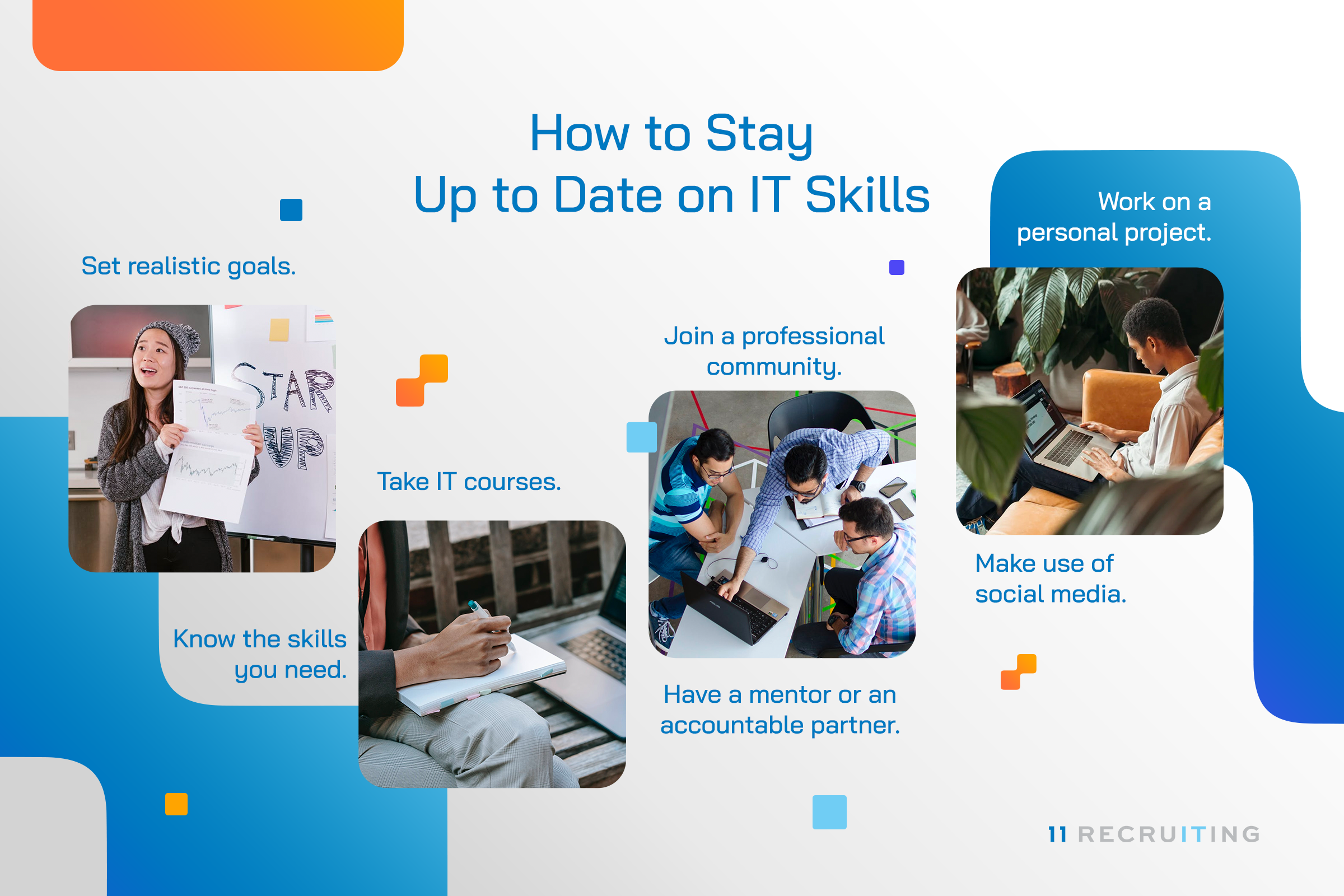
Honing and staying up to date on IT skills affect how well you can adapt to the changing demands of the tech industry. As an aspiring IT professional, you must know how to be current, relevant, and improve your skills. In this article, you’ll learn simple but effective tips to achieve an up to date skillset and understand why it’s necessary.
How Long Does It Take to Master a Skill?
If you’re a reader, you might be familiar with Malcolm Gladwell’s bestselling book – Outliers, where he mentions that you need 10,000 hours to be an expert. That’s about 4 hours, 5 times a week for the next 9 yrs, sounds crazy right? Well, it might be. A professor of psychology at the Florida State University – Anders Ericsson carried out research and found that the role of deliberate practice helps you master a skill to be an expert.
So, it’s no longer how much time (as you can become an expert in much less time than 10,000 hours ), but how well you practice and improve on already acquired sub-skills. In essence, for any IT skill you want to master, it only takes you a certain amount of conviction, commitment, and deliberate practice to become an expert.
Why Is It Importance to Stay Up to Date on IT Skill
Mastering your IT skills keeps you relevant in the tech ecosystem. As you know, technology is growing and changing every day; leaving a massive skill gap between the jobs available and the number of people entering the tech market. Additionally, with every new skill you master, your service becomes more valuable resulting in an increased demand and subsequent increase in your income. Staying up to date with tech trends and skills advances your career and financial goals as well as employment security.
Frequently Asked Questions
What is the benefit of keeping your tech skills current?
Improving your IT skills keeps your mind young and sharp. It also positions you on the right path for career opportunities in the changing world of technology. Rusty skills make you reluctant to take on a new task, so staying current with your tech skills helps build your confidence to take on any task. It also keeps you flexible and manages your time to be more effective and productive. More so, you increase your value to your employer and become a substantive contributor to your team.
What does it mean to develop IT skills?
Skill development is a learning process that helps you acquire new knowledge and build on the knowledge you have about sub-skills. So, even if your already acquired skill isn’t dated, you need to constantly strive to improve your knowledge. Again, technology is improving and accelerating, so you’ll need to find new and exciting ways to stay relevant and not fade into obscurity in the IT industry.
What happens when you don’t improve your tech skills?
Failing to improve your IT skills keeps you three steps behind in the technology industry, and for that reason, you tend to fall short in income, career advancement, and productivity. You’ll also miss a lot of growth and career opportunities, even if you have some leftover values.
How to Stay Up to Date on IT Skills
So, how do you stay up to date? Look, you don’t have to learn every new technology that comes along—in fact, that would be counterproductive. But you do have to keep your skills sharp and developed. And again, It’s not always as easy as identifying new IT skills, adopting them, and reaping the rewards. So, it’s essential you know the basic tips on how to stay up to date on your skills.

Set Realistic Goals
Make sure you set realistic and specific goals that can help you track down your process. Develop a plan you can adopt to help you stay up to date and improve your IT skills. To ensure your skill development is well-rounded, your goals should include an achievable time frame to improve your current skills and the skills you want to learn. Don’t forget to keep a career journal to list down all your achievements and training.
Know the Skills you Need
One way to improve your IT skills is to decide on the skills you’d like to develop. And to do this, you’ll have to perform a skill gap analysis to review your soft skill, technical skills, digital tools, and new technology that can help you advance in the tech industry. You can also do this by getting feedback from others around you.
So, take time to speak with your managers and colleagues, describe your goals, and identify skills that could help your career advancement in the tech industry. You can also seek advice from a mentor and if you don’t have one, talk to someone who holds a position you’re interested in.
Take IT courses
Any kind of course will do – whether online, technical school, or personal tutoring. Whichever works best for you will grow your influence and IT skill set. There are many online learning platforms such as Udemy, LinkedIn, or Coursera that teach IT skills at a budget-friendly cost or even for free. The biggest benefit is earning a certification.
Also, many technical schools and universities offer continuous IT skills learning to bag more IT certification. And sometimes, you get to have collective learning sessions that involve teamwork. So, you’re learning both soft skills and technical skills to help you do better at your job.
Join a Professional Community
A professional community is a great way to stay well-versed with the current tech trends, news, and skills you might need for your professional career growth. Some professional communities like ISACA run training programs for their members, give them access to mentors, and provide them with the necessary materials that help improve their IT skills. Join the professional community specific to your niche, attend their meetings and network, and tap into the minds of other people to see what they’re doing.
Have a Mentor or an Accountable Partner
Being accountable can be tricky. We sometimes fail to meet our goals and plans, but having extrinsic pressure and motivation can help you meet them. An accountability partner may be a mentor, a colleague, or even a younger person (reverse mentoring). This will help you create a feedback loop that can spot your mistakes and identify potential improvements to your learning routine. In the case of reverse mentoring, find a younger colleague to provide mutual coaching and support and learn from each other.
Make Use of Social Media
Social Media is one of the drivers of tech trends, ideas, news, and innovations. So, to stay up to date on your IT skills, go on social media and tap into the network of tech gurus. Connect with people on LinkedIn, join tech twitter, discord, or clubhouse spaces where they talk about a particular IT skill you’re hoping to improve on. Attend tech conferences, seminars, workshops, and shows, listen to tech podcasts that talk on relevant tech skills, follow industry leaders, read their publications, blog posts, subscribe to newsletters. Again, if you’re not sure where to start, ask your mentors or members in your field about who to shadow.
Work on a Personal Project
Practice makes perfect, and most of the time, we get to improve our skills by deliberate practice of the tech skills we want to develop. So, start working on mini personal projects, as this will help keep your technical skills sharp while experimenting with other new IT skills. Play around with current tech trends to develop new skills and know-how they work. Doing this will help you improve your IT skills.
Key takeaway,
As the technology industry evolves, so should your tech skills. Create an action plan to improve your IT skills and keep them up to date. This way, you’ll be able to sharpen your skills, remain confident, productive, and flexible when it comes to adapting to a changing environment.

